On October 19 and 20, in Da Nang, the Ministry of Education and Training organized a number of workshops to collect opinions for the development of a draft project on university autonomy in Vietnam for the period 2024 - 2030.
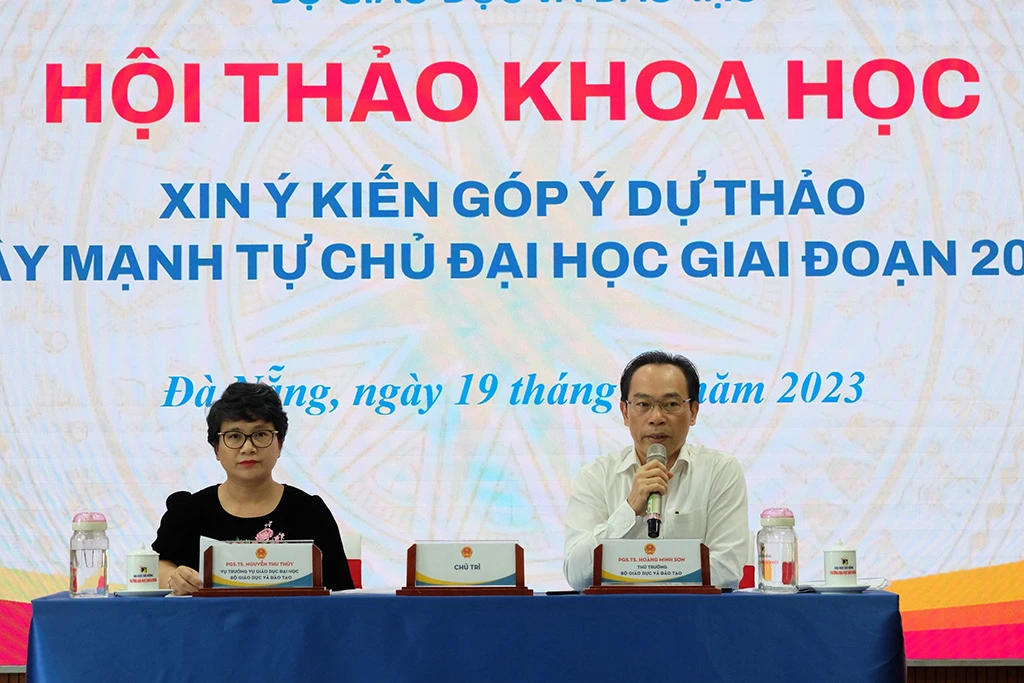
Deputy Minister of Education and Training Hoang Minh Son (right ) chaired a workshop in Da Nang on giving comments to complete the draft project on university autonomy in Vietnam for the period 2024 - 2030.
According to Mr. Hoang Minh Son, Deputy Minister of Education and Training, universities and experts as well as the Ministry of Education and Training have the responsibility to make society realize that if there is no change, the difficulties being encountered are a risk to the country's development strategy. Developing high-quality human resources, developing science and technology, developing the digital economy, green economy, and then becoming a country with an upper-middle income by 2030..., all of these goals are at risk of not being achieved if higher education does not change. Therefore, the content of the project must point out the real "bottlenecks" that, if not changed, will lead to consequences. Once discovered, the remaining task is to find a solution to solve that "bottleneck" which is not too difficult.
N MANY PROBLEMS IN THE DIVISION OF POWERS
According to Professor Nguyen Quy Thanh, Principal of the University of Education, Vietnam National University, Hanoi, regarding the issues related to the school council, it is necessary to identify the root problem when autonomy is the process of decentralization. It is necessary to determine where that decentralization comes from. If decentralization is done without determining where that power comes from, there will be power struggles within an organization, leading to conflicts, which in reality some units have encountered.
Professor Thanh noted that the authority of the Board of Directors must be delegated by the management agency, but is heavily dependent on the management agencies. "If we delegate more strongly to the Board of Directors, then the Board of Directors will have real power. Board members must be people with real power, not just representatives in the form of a front for all components as in operation. There will be a power struggle within the Board of Directors and the Board of Directors," said Professor Thanh.
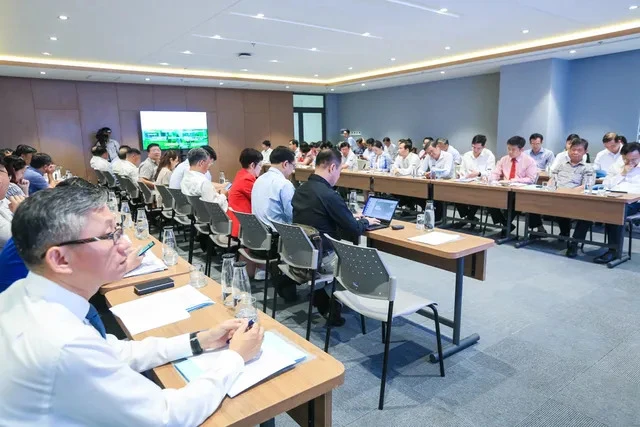
Rectors and leaders of universities in the plenary meeting of the Council of Rectors of Universities in Ho Chi Minh City. It is necessary to resolve the problems of authority between the Chairman of the Council and the Rectors.
ILLUSTRATION: NHAT THINH
According to Professor Thanh, the principle of decentralized management is that state power in different fields is assigned to different ministries and branches, and that power is transferred to buffer organizations such as the Board of Directors. Currently, the Board of Directors is not authorized to delegate the power of related state management agencies but is using some of the power of the Party Committee and some of the power of the school board. "The power cake (let me call it that) was originally small because decentralization was not strong enough, now there is a dispute over the power related to the right to decide, leading to other stories about the issue of interests," Professor Thanh shared.
However, Associate Professor Pham Ngoc Thach, Chairman of the Board of Directors of Hanoi University, said that the Chairman of the Board of Directors and key members of the Board of Directors need to have a clear point of view: the Board of Directors has an administrative role, do not demand to participate in management. "Many times, just because the Chairman of the Board of Directors wants to participate in the management of the school, some tasks that should be assigned to the principal, for example, appointing a department head or dean, the Board of Directors assigns the principal to appoint according to the Party's principles on personnel work, then the current difficulties in the relationship between the Board of Directors and the Board of Directors will be resolved," Mr. Thach raised the issue.
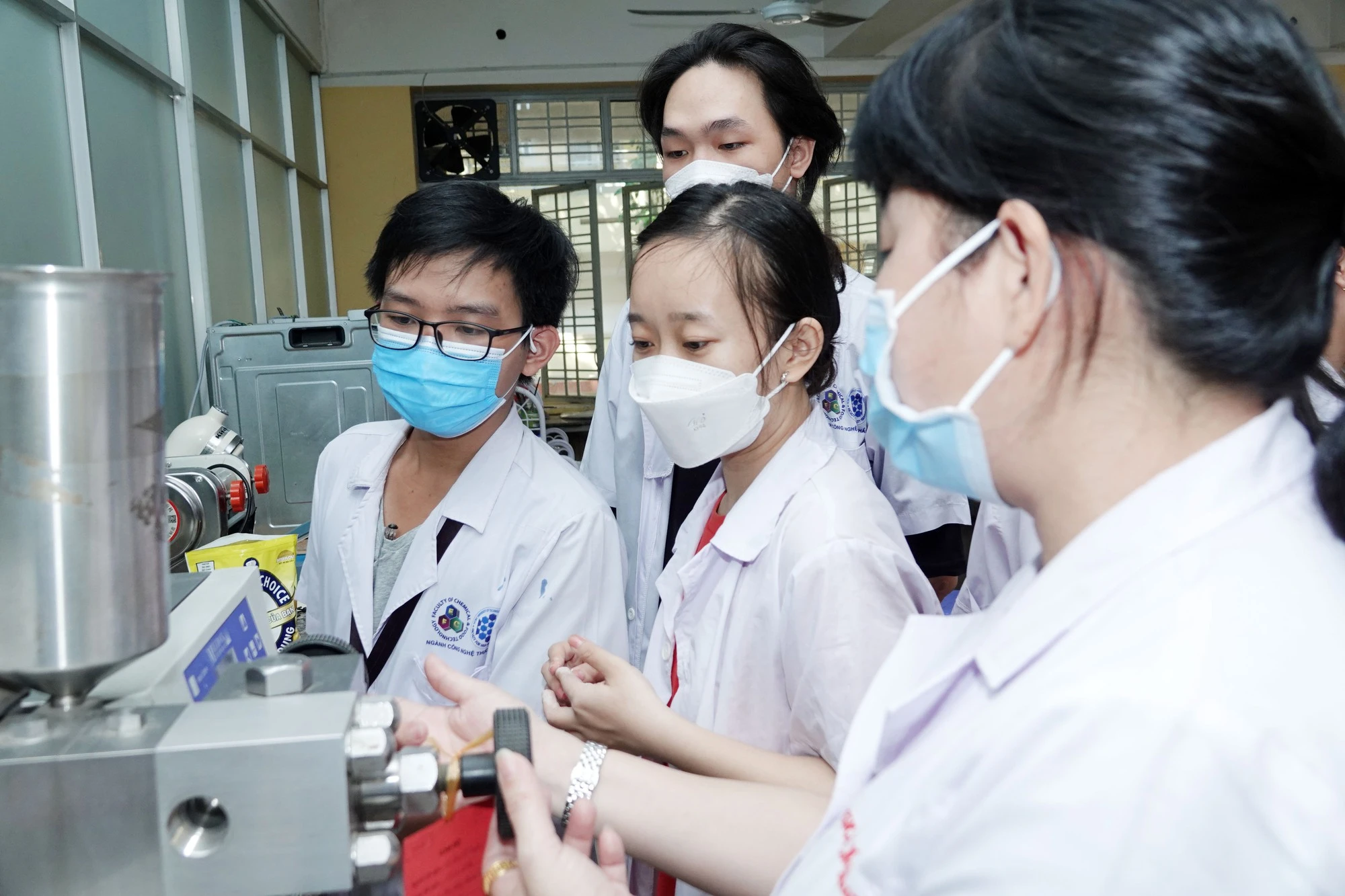
The goal of the university autonomy project in Vietnam for the period 2024 - 2030 is to create resources for universities to develop.
MUST CREATE RESOURCES FOR UNIVERSITIES TO DEVELOP
According to Professor Pham Hong Quang, Chairman of the Board of Directors of Thai Nguyen University, in the three autonomy rights (finance, apparatus, academics), the project needs to try to clarify: finance and apparatus are the means to achieve the ultimate goal of creative freedom, academic freedom, and the university's contribution to the country. From here, the way of thinking of some ministries and sectors related to money management will be cleared, so that they understand that if the two issues of finance and organization - apparatus are clear, the university will be able to survive.
A very concrete action is to lend the principals a "decent" amount of money at the beginning of their term, so that they can do their job during their term. "At the beginning of the term, the principal and the Board of Directors will think together to see what needs to be done. Currently, universities only accumulate a few tens or hundreds of billions of VND, spending each year, and eventually running out. If the state lends the principals money so that they have a large financial resource, that would be very good," Professor Quang suggested. But Professor Quang also noted: "In a spider web of policies, the path of drafting a project like this is fine, but sooner or later the University Education Law will have to be amended."
According to Professor Nguyen Dinh Duc, Chairman of the Board of Directors of the University of Technology, Vietnam National University, Hanoi, the reason the Government allows autonomy is because the schools lack resources. Therefore, the goal of this project is to create resources for universities to develop. "The first resource is money. The state does not provide money. To have money, we must decide our own tuition fees. The University of Technology is autonomous, the state does not provide money, but tuition fees do not increase, while the training is good. Other schools are allowed to collect 60 million, the University of Technology is only allowed to collect 20 million, which is unfair," Professor Duc expressed.
AUTONOMY IN THE SITUATION OF 'THROWING STONES TO PROVE THE WAY'
Associate Professor Nguyen Ngoc Vu, Director of Danang University, said that one of the biggest problems is that the system is not yet synchronized and consistent. The schools participating in autonomy are currently "testing the waters". It is still unclear whether the tax policy for autonomous schools is good or not! Besides the areas with strong autonomy, some areas, especially regarding tuition autonomy, are still stuck. The university that just became autonomous had its budget cut, but tuition fees have not been allowed to increase in the past few years. "If the budget is cut, then tuition autonomy must be given", Associate Professor Vu was upset.
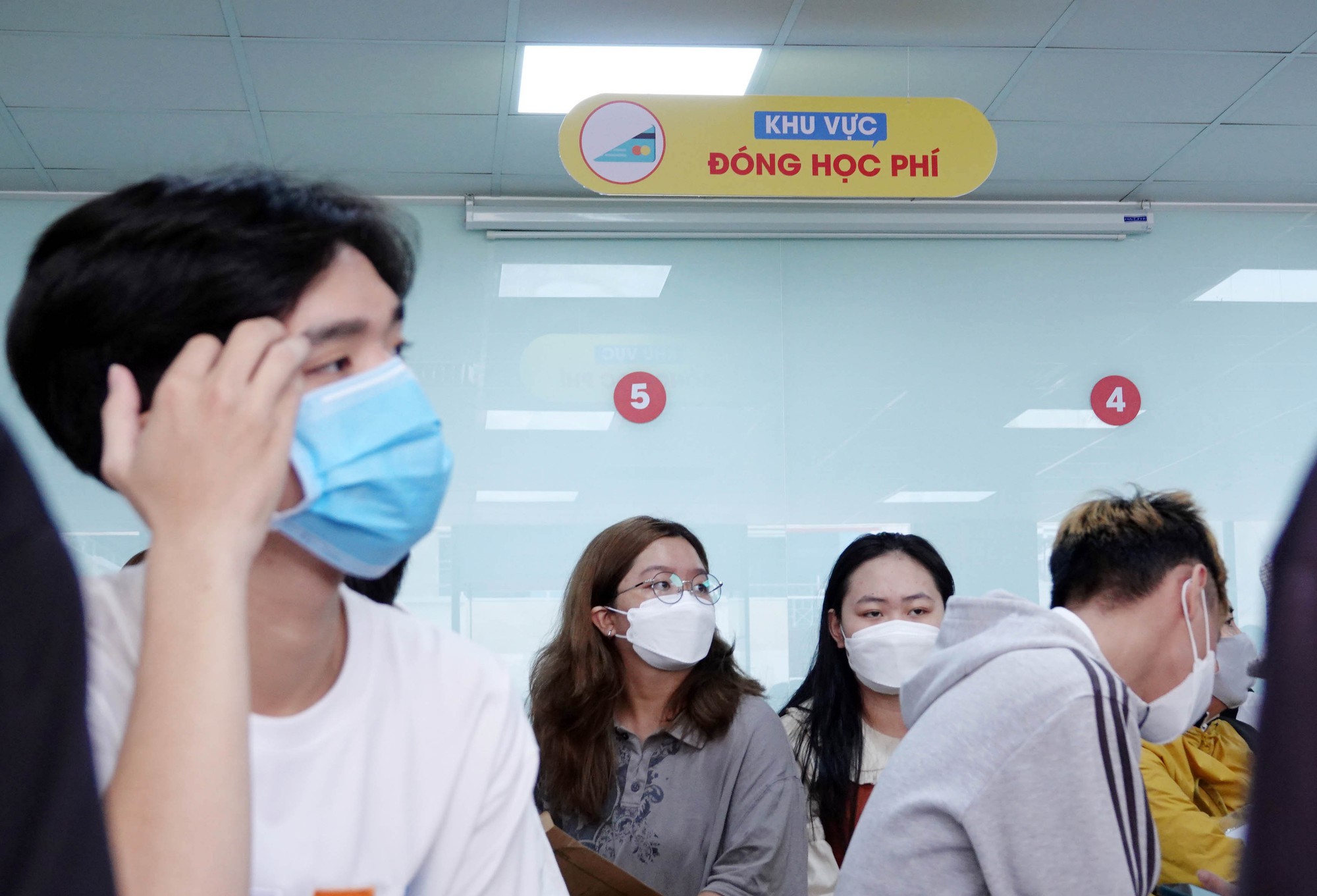
According to university representatives, besides areas with strong autonomy, some areas, especially tuition autonomy, are facing difficulties.
Dr. Hoang Xuan Hiep, Principal of Hanoi University of Industry, highly agrees with Associate Professor Vu's opinion when talking about unclear tax policies. Because of the lack of clarity, when the tax authority comes to inspect a unit, that unit will suffer relatively heavy consequences. During the period of 2019 - 2022, due to Covid-19, all schools are facing many difficulties and are also very worried because they do not know what the future will be like. Therefore, each school has to "tighten its belt" every year to save a little for the following years, to prevent risks. But that part of risk prevention has been subject to tax collection.
"Another problem is that when the tax department inspected, it proposed to collect a 2% tax on tuition fees that schools cannot account for by deducting costs from revenue. Tuition fees account for 80-90% of the revenue of schools in general. If the government now collects a 2% tax, schools will essentially have to collect it from students. Meanwhile, the government has no policy to collect taxes from students when they pay to schools," said Dr. Hiep.
Financial policy and mechanism bottlenecks
According to Mr. Hoang Minh Son, Deputy Minister of Education and Training, one of the current bottlenecks in university autonomy is the financial mechanism policy. This is the investment perspective and investment for development. Investment for development requires the state to invest, as well as society to invest in a way that brings the highest efficiency, not a leveling mechanism.
Schools do not want to have a high level of financial autonomy but have their funding cut, and suffer a series of disadvantages such as tax policies, land use fees, etc. It is unfair that when universities are autonomous, the state does not have to provide regular expenses anymore, but they have to pay a lot of taxes, do not receive incentives anymore, or suffer many other disadvantages.
Therefore, the view of the Ministry of Education and Training is that without autonomy, the burden of university financial resources can be placed on tuition fees and there is no need for the state budget. State resources still play a leading role. Because the state has interests (public interests). Learners must also invest. But the state must also invest to bring public interests. Resolution 29 itself affirms that the state plays a leading role in developing higher education.
Source link


![[Photo] The parade took to the streets, walking among the arms of tens of thousands of people.](https://vphoto.vietnam.vn/thumb/1200x675/vietnam/resource/IMAGE/2025/4/30/180ec64521094c87bdb5a983ff1a30a4)

![[Photo] "King Cobra" Su-30MK2 completed its glorious mission on April 30](https://vphoto.vietnam.vn/thumb/1200x675/vietnam/resource/IMAGE/2025/4/30/5724b5c99b7a40db81aa7c418523defe)


![[Photo] Panorama of the parade celebrating the 50th anniversary of the Liberation of the South and National Reunification](https://vphoto.vietnam.vn/thumb/1200x675/vietnam/resource/IMAGE/2025/4/30/affbd72e439d4362962babbf222ffb8b)
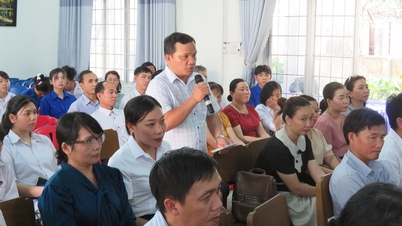



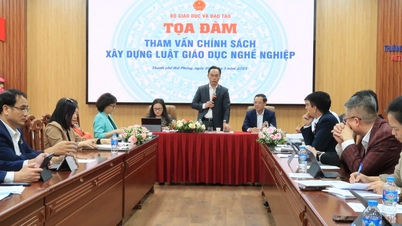

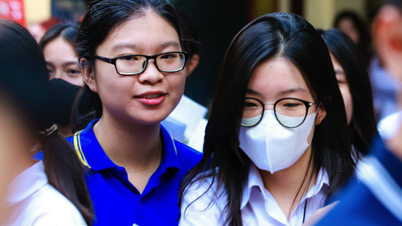

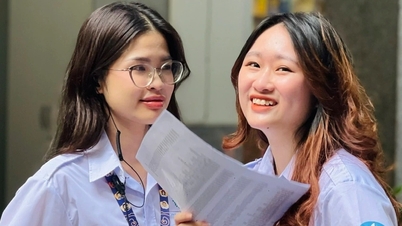
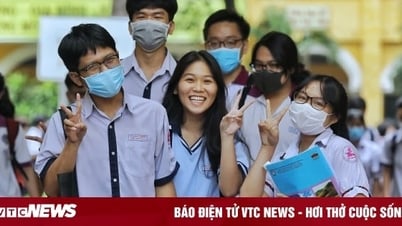

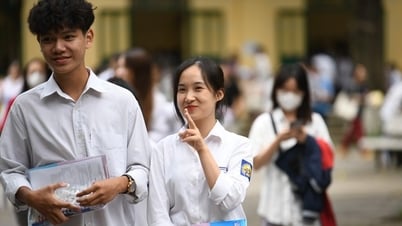
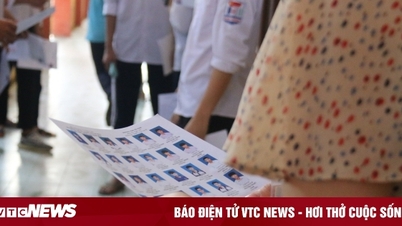
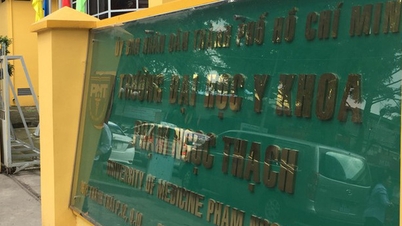










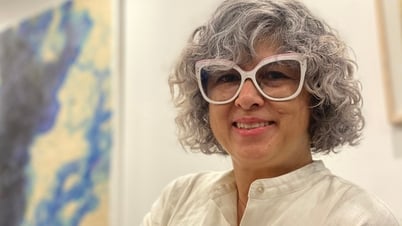


![[Photo] Cultural, sports and media bloc at the 50th Anniversary of Southern Liberation and National Reunification Day](https://vphoto.vietnam.vn/thumb/1200x675/vietnam/resource/IMAGE/2025/4/30/8a22f876e8d24890be2ae3d88c9b201c)























































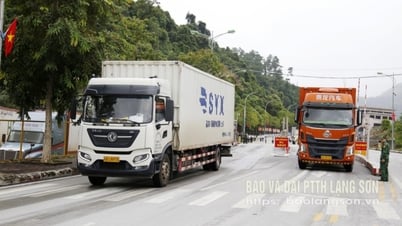













Comment (0)